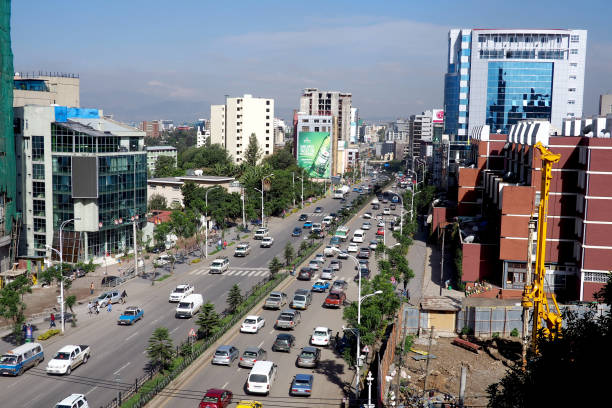Ethiopia is a formidable power in the Horn of Africa and Africa. It is a country with a rich cultural heritage.
Ethiopia has the largest landlocked economy in Africa and the largest population in the Horn. It shares borders with a total of 6 countries namely Somalia, Sudan, South Sudan, Eritrea, Kenya, and Djibouti making it susceptible and vulnerable to threats emanating from these countries.
Undoubtedly, Ethiopia is one of Africa’s fastest-growing economies with a GDP of $126 billion which is fueled by a flourishing agricultural and manufacturing sector. This is projected to grow 5.8% in 2023 and 6.2% in 2024. It is unsurprising that it is making overtures at joining the BRICS.
Ethiopia’s exports are almost entirely agricultural. Like most African countries, there is little, or no value added. With a burgeoning middle class with a voracious appetite for processed goods, there is a huge opportunity for processing industries. Coffee is the primary foreign-exchange earner with annual revenue nearing $1 billion. Other exported products include khat, hides and skins, and oilseeds.
Ethiopia has enormous natural resources such as gypsum, diatomite, lithium, hydrocarbons, graphite, gold, and potash which can be utilized to bring prosperity. Studies reveal that the Ogaden Basin holds 7 trillion Cubic Feet (7TCF) of natural gas. More importantly, potash from Ethiopia can be a game changer as far as fertilizer production is concerned. With Russia and Ukraine still at war, there is a lacuna in the supply of fertilizers around the world.
With nine UNESCO world heritage sites as of August 2021, Ethiopia is best placed to be a hub of tourism in Africa. According to the World Travel & Tourism Council (WTTC) Tourism in Ethiopia grew by 48.6% in 2018, the largest of any country in the world raking in $3.55 billion. However, these gains have been scuttled by COVID-19 and insecurity in Ethiopia. Nevertheless, recovery is on the horizon.
Security issues:
Ethiopia indeed faced external threats like terrorism, the proliferation of arms, and spillover effects of neighboring country conflict and internal threats issues such as poverty, famine and periodic drought, violent conflicts, civil unrest, crime, communications disruptions, and kidnapping in border areas. Tourists are encouraged to stay away from the Afar region, Amhara region, and Ethiopia-Somali border—where ISIS affiliates are active.
Verdict:
Ethiopia needs to chart a new path that enhances inclusion and cooperation. Also, preventive diplomacy with an effective early warning should be adopted to quell intra-regional conflict. Human security issues should be a priority to restore trust. With a young and vibrant population coupled with enormous natural resources, Ethiopia provides a profitable market for investors.
